

An hour before we meet, BBC Radio 4’s Today presenter Nick Robinson was tying James Cleverly up in knots over immigration. Cleverly was skirting round Robinson’s questions – about whether the Home Secretary would put a number on the changes to net-migration should the Tories be re-elected – and Robinson was getting frustrated with the evasion.
“You could almost hear the smile [on Cleverly’s face],” Robinson muses, wryly. “He knows exactly what he’s doing. And of course it’s frustrating, because, to be pompous about it, I think people in the electorate have a right to know [the answers].” The Home Secretary, he adds, “is far from the only offender”.
Robinson is famous for his combative interviewing style, especially since the departure of his long-term colleague John Humphrys in 2019. He has recently welcomed an equally dogged new presenter in the form of Emma Barnett, who joined Today from Woman’s Hour last month, completing the line-up of Robinson, Mishal Husain, Justin Webb and Amol Rajan.
“Most people who start in that job, me included, find literally just knowing how it works very difficult – what we in the business call ‘not tripping over the furniture’. Emma’s not tripped over the furniture once. She just sounds completely at ease, as if she belongs,” says Robinson. She is, however, “discovering, just as I did when I started, that there’s a scrutiny of your [Today] interviews that you don’t really get anywhere else”.
Robinson is gearing up for intense scrutiny of his interview technique, as from Monday he steps into Andrew Neil’s shoes to embark on the task of interviewing all of the political leaders in a series of BBC Panorama specials ahead of the general election. He’s looking forward to it, he says. “The election interviews matter.”
“For me, preparation is the underlying point.” This morning he was up at 3.30am to present Today; then he will dedicate much of the rest of his working day to researching ahead of the interviews. Today his focus is on Rishi Sunak: reading all of his recent speeches and watching endless interviews with him, looking out for body language clues, verbal tics and particular phrases that the Prime Minister uses that suggest a topic he is uncomfortable with or uncertain on.
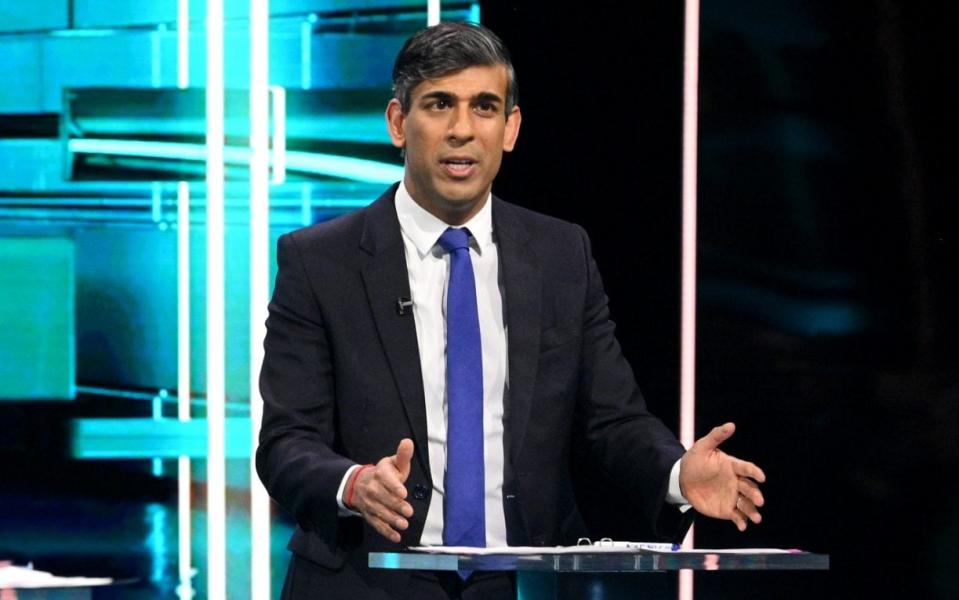
His job is, he says, to dig out and try to answer “the key underlying question people have got about a party or an individual. It’s to get into their head and then try to challenge a statement: why is this person saying what they’re saying? And what are they not saying? What is it that they really don’t want to say? Has this person been properly tested and challenged and held to account in a way that’s fair and engaging?”
He launches into an example concerning the SNP and their subtly changing stance on oil and gas exploration. “It’s clear their policy… is on the move,” he explains. “The preparation [for interviewing John Swinney] was to find that jargon that they hide behind. The phrase now is ‘climate change compatibility’, I think. The prep is going, ‘I know what you’re doing there. I know when you use that phrase, you’re trying to not answer the question,’ and can I then boil the question down to something that is simple to understand. I’ve spent hours doing it.”
Despite his gladiatorial reputation, he is, he says, “impatient with the ‘gotcha’ interview. As an interviewer, what you want is engagement. It wants to be a conversation.” The modern tendency to counterpoint A with some statistics from source B is, he says, “very sterile”.
But he also admits to being “kind of an interview-holic. As a kid I watched endless Robin Day interviews; I was hooked as a student on Brian Walden’s interviews – I love the drama, the theatre. But I also love the sense that there was genuine dialogue.”
He is aiming in next week’s interviews, he says, to do the same thing. “I want people at the end to say: ‘OK, I get that, I get that person, I get what the choices are.’ And yeah,” he adds with a grin, “there’s my moments of theatre as well – because after all, we’re in the showbiz business.”
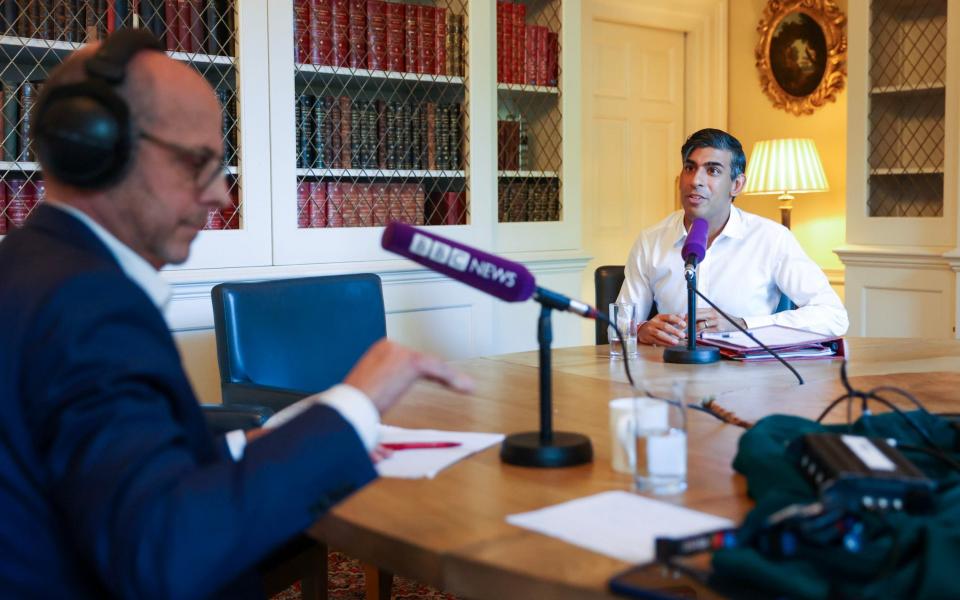
It’s a typical Robinson comment: a little bit cocky, a bit devilish, but self-deprecating too. The broadcaster has always had this blustering, magnetic energy about him, emphasised by his grin, his rounded cheeks and his specs.
But right now he looks exhausted: his eyes dark-circled, his suit rumpled, and at regular points during our conversation, in between tearing apart a croissant and taking enormous slurps from his cup of coffee, he lets out a hacking cough.
For a cancer survivor who turns 61 this year, his schedule is fairly punishing. “It does bugger up your life,” he admits.
Not that he’s about to slow down. “I’m not looking to count the days, although I want to beat the John Humphrys record at Today. It would just mean I’m 84 when I retire.”
Robinson has been in this “game”, as he refers to it, since 1986, when he joined the BBC as a production trainee after graduating from Oxford (where he was awarded Cherwell’s Pushiest Fresher of the Year award) with a 2:2 in PPE. He worked his way up to become deputy editor of BBC1’s On the Record, then moved to be deputy editor of Panorama. In 1995 he became the BBC’s political correspondent, covering his first general election in 1997; he moved to ITN in 2002 and returned to the BBC as political editor in 2005. He has been with Auntie ever since. “And of course, Brian Redhead (the British broadcaster who also presented Today) was the reason I wanted to be a journalist. He was my best friend’s dad.”
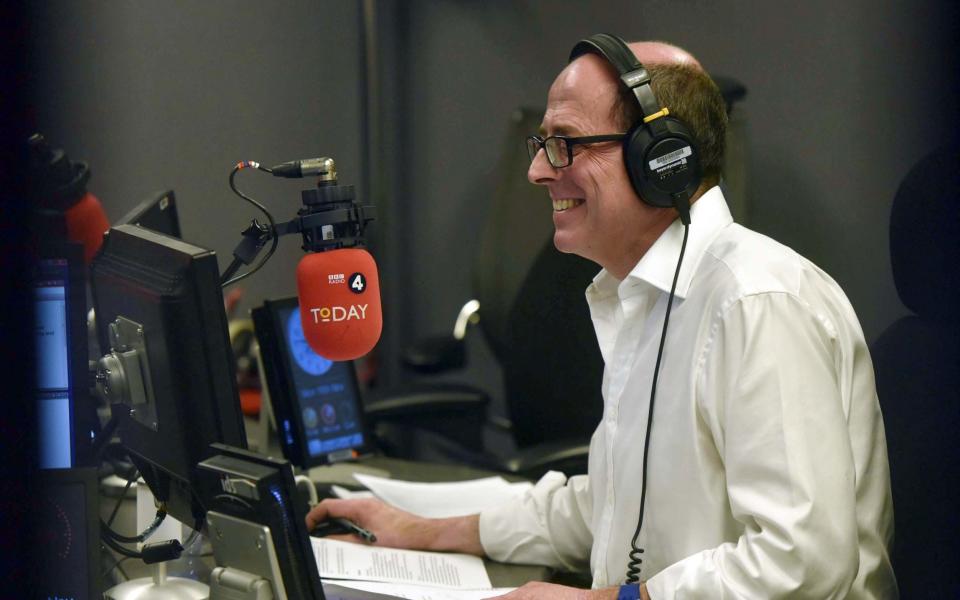
Said best friend, Will Redhead, was killed in a car crash in Lille in France. The VW Beetle he was driving – with Robinson and their friend James Nelson (who also died) as passengers – had a head-on collision and exploded. The three were spending time travelling around Europe after leaving school and before heading off to university. Robinson, 18 at the time, was severely burned, spent five weeks in hospital and had to defer his university place for a year, so that he could pay regular visits to a burns clinic, but denies that his subsequent career path was a way of atoning for the death of Redhead, whose father became Robinson’s mentor.
“I spent a lot of time with them,” he says. “I went on holidays with the Redhead family, I visited their house several times a week on my way back from school and he [Brian] was often there. And I just thought, ‘Wow, what a job. It’s just so interesting – why wouldn’t you want to do that?’”
He was also, he says, inspired by his mother’s parents, German Jews who fled the Nazis, first to China, and then when China was taken over by communists, to England. “They risked prison in Shanghai to listen to the news, locked in a cupboard, because shortwave radios were banned when the Japanese occupied Shanghai. My mother recalled that they would sit in the cupboard and they would listen to the words: ‘This is London.’”
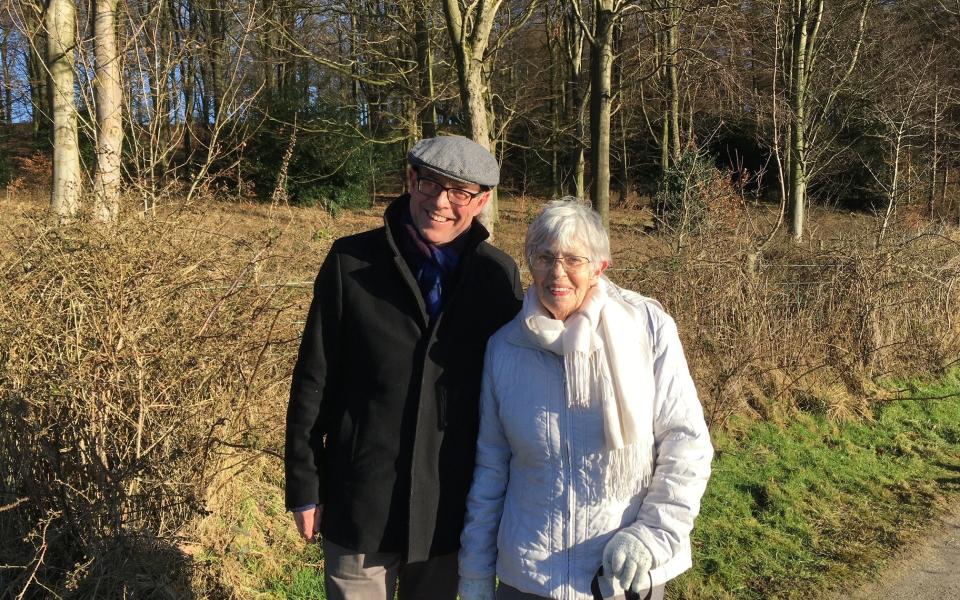
His loyalty to the national broadcaster is unequivocal. “I passionately believe that we are a better country for the BBC,” he says. “I passionately believe that what my grandparents went through in terms of extremism is halted by proper journalism; by public service broadcasting; by people who don’t say things because they’re paid by some wealthy owner of a paper or a news channel. Not because that’s their political view, not because that’s the person they want to help or the party will help, but because it’s as close to the truth as we can get on the day.”
He refers to Trump as a “demagogue”, and “the first thing demagogues do is attack the media”. But when he himself criticises GB News, “it’s not a game I’m playing. The roots of our democracy are in a proper national conversation. And a proper national conversation means that the people who are asking the questions are not politicians.”
It is why, he says, it is worth remembering that weeks ago, Nigel Farage was lobbying for people to refer to him as a former politician, “because he was having an argument about whether he could stay on air [on GB News] during the election under Ofcom rules that don’t allow politicians to broadcast. I was one of those people saying, ‘There are rules in this country. If you want to change the rules, have a public debate.’” But, he adds, “if I did what Farage did – broadcasting uninterrupted, unedited, unchallenged, his view of the world at length – for a tenth of the time, I’d be sacked for it.”
That said, Robinson admits that Farage’s late entry into the election as Reform UK’s party leader and candidate for Clacton-on-Sea has added a hint of spice into the proceedings. He even wonders if he himself might be to blame.
“I suggested in an interview with him that he might be ‘frit’ [Margaret Thatcher’s Lincolnshire term for frightened]. I don’t know if that’s why he thought [he would run] but there’s no doubt that anything unexpected makes it more exciting.”
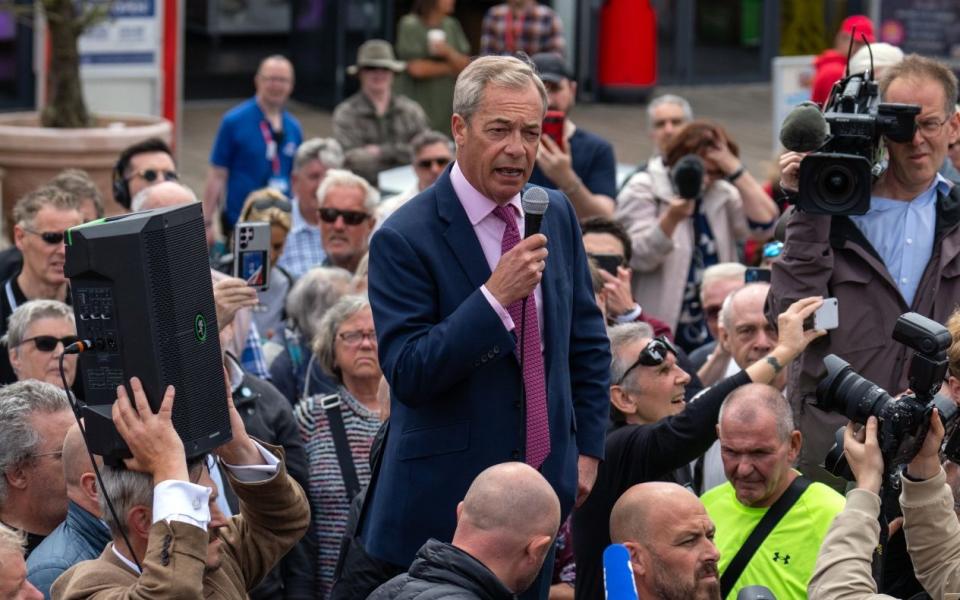
He does not, he says, assume the outcome of the election will automatically be a Labour victory. But he admits that “I’m bloody hopeless at predictions”, citing as one of his worst moments, when he had to present the exit poll in 2010 which (correctly) suggested a hung parliament, “and that’s not what I thought was going to happen. [On the clip of him presenting the poll], I look like a man holding up a piece of stinking fish with his fingers on his nose.”
But he suggests that, almost more interesting, are the elements at work below the surface of election politics: “the battle for the future of the Right – Conservative versus Reform – the battle in Scotland, between Labour and the SNP, the battle over whether the Lib Dems can revive as a big national force… What should interest people about this election is that the decisions they make now will shape their lives for years.”
What we can – and should do more of – in this country, he says, “is look around the world, and see the rise of populism. I don’t like the phrase ‘far-Right’; it’s got connotations of a sort of neo-fascism.” But, he says, “there is a rise of new forces on the Right – right across Europe, ranging from the very traditional Marine le Pen to Meloni, to Geert Wilders, to the AFD. So it would be amazingly small-minded to think that those forces that are at play – anger about declining real wages, anger about immigration, concern about identity in the face of globalisation – are not at play here [in the UK].”
Farage, he says, is channelling “very successfully the sense that he’s on the side of a large group of people who feel angry” – about the fact that “the central promise of peace and prosperity has felt for many people,
for many years, to have been broken”. The Tories are “struggling to do the same, although they’ve got 30 more days to do it”.
He won’t be drawn on Sir Keir Starmer, but points out that people forget that, despite having been political all his life, Sir Keir came late to politics. “He’s not spent decades kissing babies, or going on water slides. And none of that comes naturally. And you know what, why should it? I’m told Rishi Sunak didn’t look great with the football [when the Prime Minister attempted to run with the ball while visiting Chesham United FC on the campaign trail and nearly fell over]. But I’m bloody rubbish at football – why should he be good?”
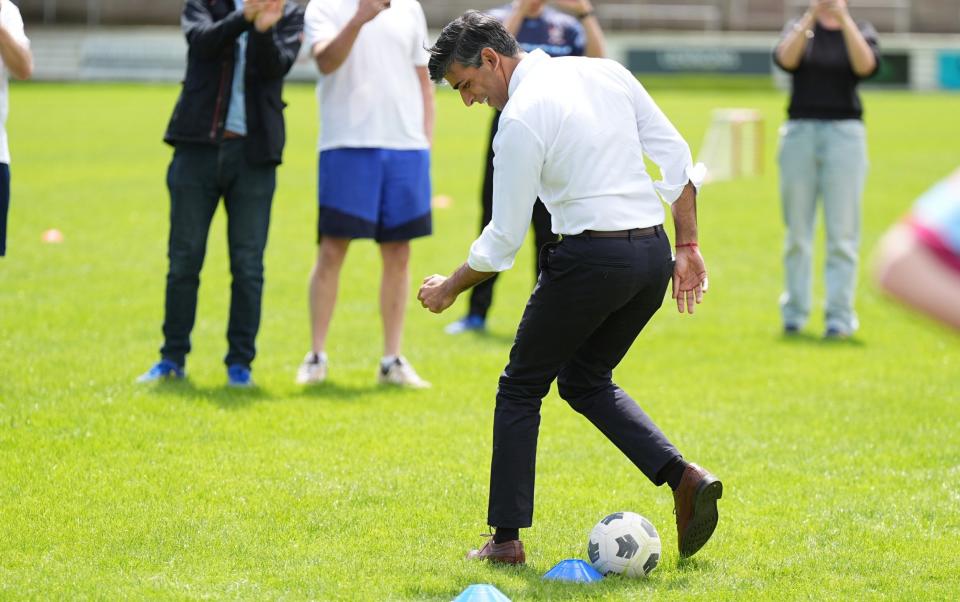
Does he, though, despair of the calibre of our politicians today? It’s hard to avoid the sense that many of them seem more management consultant than elder statesman. At the very least – Farage aside – there appears to be a dearth of current politicians with any sort of charm.
Look, he says, “clearly there have been a whole series of very charismatic politicians – I’ve covered politics dating back to Ken Livingstone in London, Alex Salmond in Scotland and clearly Boris Johnson and Nigel Farage. But they’ve all had something to say.
“If they were just the guy you want a pint with, they wouldn’t succeed. They succeed because there’s a vacuum. They succeed because they fill that vacuum in terms of what a certain group of voters want to hear said. And that’s what gives them power.”
Plus, he adds, “people are forged by events. I am 60 now. So I can still remember the post-war generation. And it’s true that people forged in war, who came into public life later on, who’d seen the horror of war and served alongside people who are very different from themselves often appear to have… gravitas that isn’t shared by [the] people who followed.” But, he points out, Johnson, “love or loathe him… was exposed by Covid in terms of his decision-making abilities, but the Ukraine war played to his strengths. Rishi Sunak was – many commentators would say – statesmanlike during Covid.”
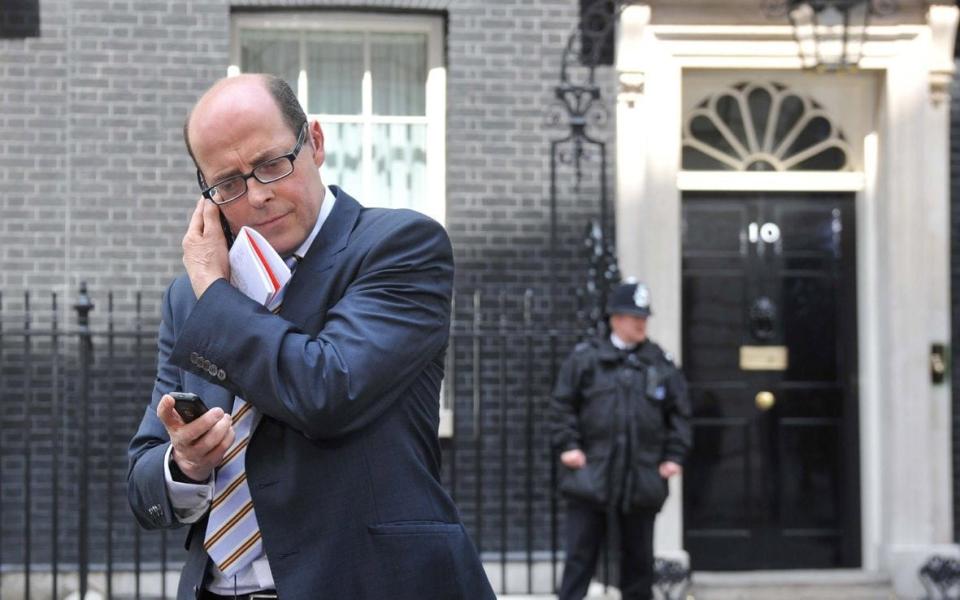
What does drive him “to despair”, he says, is the voters themselves – us the populace. “Voters put completely unfair and unreasonable pressure on the people we vote for. We the public want everything. We’re very reluctant to deal with trade-offs, and we’re extraordinarily quick to judge and find people wanting.” But, he goes on, “it takes everybody to play this game. There’s no use listening to the radio or watching the telly and shouting at a politician you think is evasive if you never want to hear the truth.”
It sounds, dare I say it, a rather Right-of-centre approach to life. Robinson, born the youngest of three (he has an older brother, Mark, and sister, Debbie), to a translator mother and a sales director father in Macclesfield, grew up on a housing estate in the town and was a founder member of Macclesfield’s Young Conservatives in his youth, rising through the ranks to become chairman, and during his time at university was president of the Oxford University Conservative Association.
He has been criticised, in the past, for allegedly reporting with a pro-Conservative bias. On this occasion, Robinson remains smilingly shtum about his politics, although, when I ask him about being a guest at George Osborne’s recent second wedding, he snaps back immediately: “To be clear, for your interest, it was because he married my ex-producer. The only journalists at that wedding were not political friends of George Osborne’s, they were former colleagues of Thea’s.” I move on but he won’t let it lie: “Ed Balls was there too. And Yvette Cooper. Just saying.”
He does not, he says, tend to spend time socially with politicians.
“It isn’t the case that round my dinner table – in as much as we have many dinner parties – that you’ll see a serving politician.”
What he does like to do, when he’s not at work, is spend time with his family. He’s been married to Pippa, a relationship counsellor, whom he met at Oxford, since 1991. They have three children: Harry, 23, Will, 26, and Alice, 28, and live in Highbury, north London, close to Arsenal’s Emirates Stadium (he also has a second home in Orford, Suffolk, where he goes to decompress and indulge his passion for sailing).

Not that Robinson would ever be anything other than a Manchester United supporter: his normally uber-political X (formerly Twitter) feed was interrupted last week by a picture of “the Robinson boys” delightedly celebrating their team’s surprise win at Wembley. Man U crops up more than once in our discussion – he mentions, disgruntledly, that before the Johnson interview in which Robinson told him to “stop talking”, he’d “made a big effort to try and make sure it was a successful interview. I’d even made the ultimate sacrifice – I’d taken one of his staff to Old Trafford, so I had mixed politics with Manchester United.” One senses he won’t be making the same mistake again. Nevertheless, he adds about that particular interview, although he “was deeply annoyed with myself… I felt like I’d lost control… He [Johnson] bloody well deserved it because he deliberately wasn’t answering my question.”
One hopes he won’t be telling the party leaders to stop talking over the next few weeks. For now, though, our time is up. As we finish, his phone beeps. It’s not a politician, but his mother’s plumber. “Back down to earth,” he says cheerfully. And he’s off to get back to his research.
Nick Robinson’s party leader interviews for BBC Panorama will start from Monday June 10 on BBC One and BBC iPlayer
EMEA Tribune is not involved in this news article, it is taken from our partners and or from the News Agencies. Copyright and Credit go to the News Agencies, email news@emeatribune.com Follow our WhatsApp verified Channel









